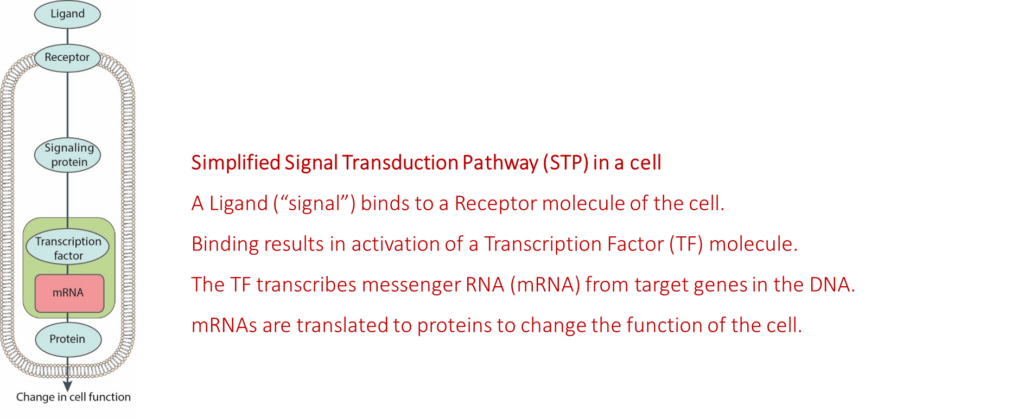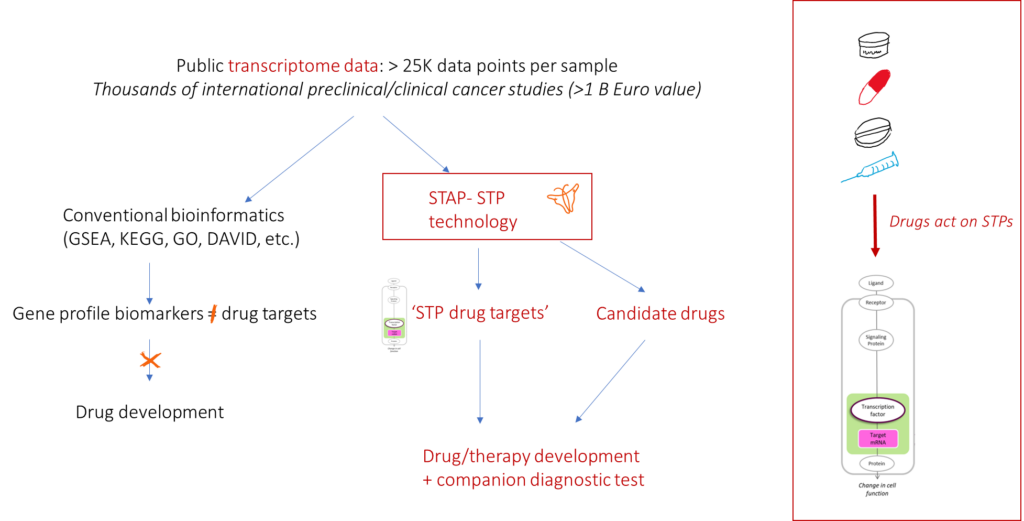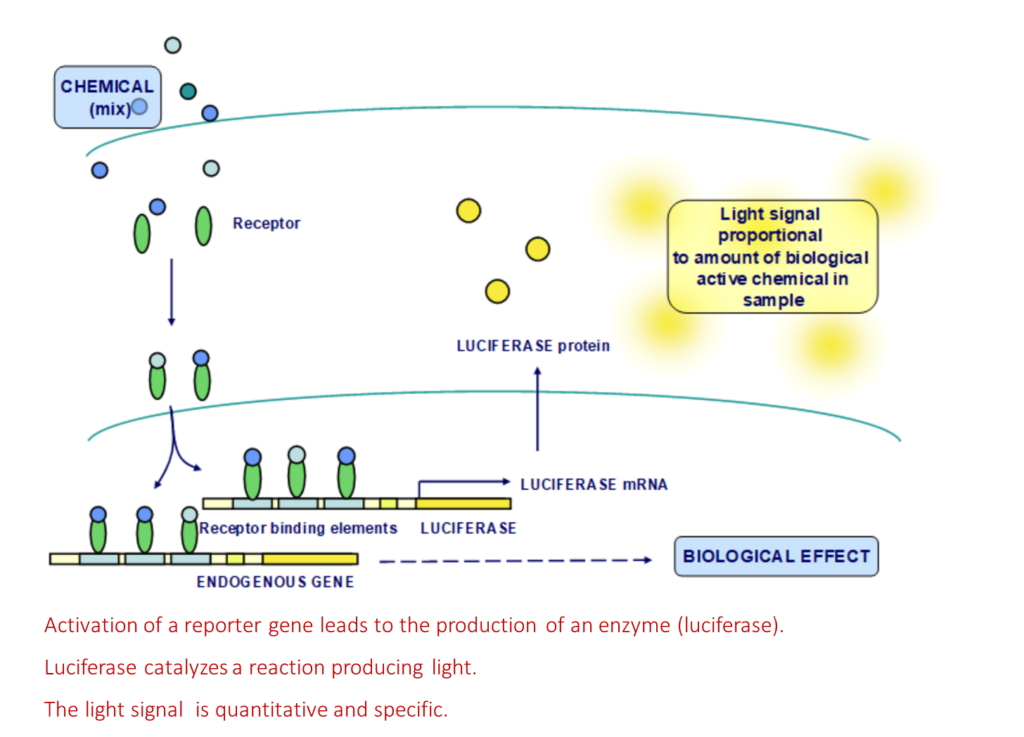We use proprietary STAP-STP technology (Simultaneous Transcriptome-based Activation Profiling of Signal Transduction Pathways) to develop cancer differentiation therapy, with associated companion diagnostic test for precision treatment. STAP-STP software is based on a smart fusion between human and artificial intelligence to measure the biological processes that are essential to health and disease.
Proprietary CALUX STP technology (Chemical Activated Luciferase gene expression) is used for (high throughput) compound screening, toxicology, and ADME.
STAP-STP Technology: smart fusion between human and artificial intelligence
STAP-STP technology has been developed, validated, and patented within Philips Research since 2008. It is a first-of-kind software-based platform technology.

Signal Transduction Pathways (STPs) are the biological processes that regulate functions of all cell types in the body. A change in STP activity is related to a change in cell function. Drugs act by changing STP activity.

STAP-STP technology enables quantitative measurement of activity of the relevant STPs simultaneously on any cell or tissue sample (from the laboratory or patient), based on mRNA expression analysis. This results in a series of STP activity scores, the STP-profile.

STAP-STP technology is based on Bayesian artificial intelligence: a probabilistic mathematical model quantitatively infers activity of an STP from measured mRNA concentrations of target genes of the transcription factor of an STP.
We use STAP-STP technology to analyze mRNA expression data from existing (transcriptome) data of thousands of preclinical and clinical studies in worldwide public databases, such as GEO.
This analysis results in proprietary information on the mechanism of disease, mechanism of action of drugs, drug side effects, drug resistance mechanisms, laboratory disease models etc..
Our experimental program starts here: we use STAP-STP technology to analyze mRNA expression data from newly generated laboratory and patient samples.

STAP-STP technology compared with conventional bioinformatics

Unique features of STAP-STP technology:
1. translation of transcriptome data to STP drug targets, candidate drugs, and companion diagnostic test
2. highly quantitative, extensively validated
3. STP-profile per individual sample
4. applicable to any cell type
CALUX-STP technology

CALUX-STP technology: panel of validated ‘reporter’ cell lines with integrated DNA-based ‘sensors’. STP reporter cell lines enable quantitative and highly specific activity measurement of a single STP per reporter cell line. Other reporter cell lines address toxicity and ADME.